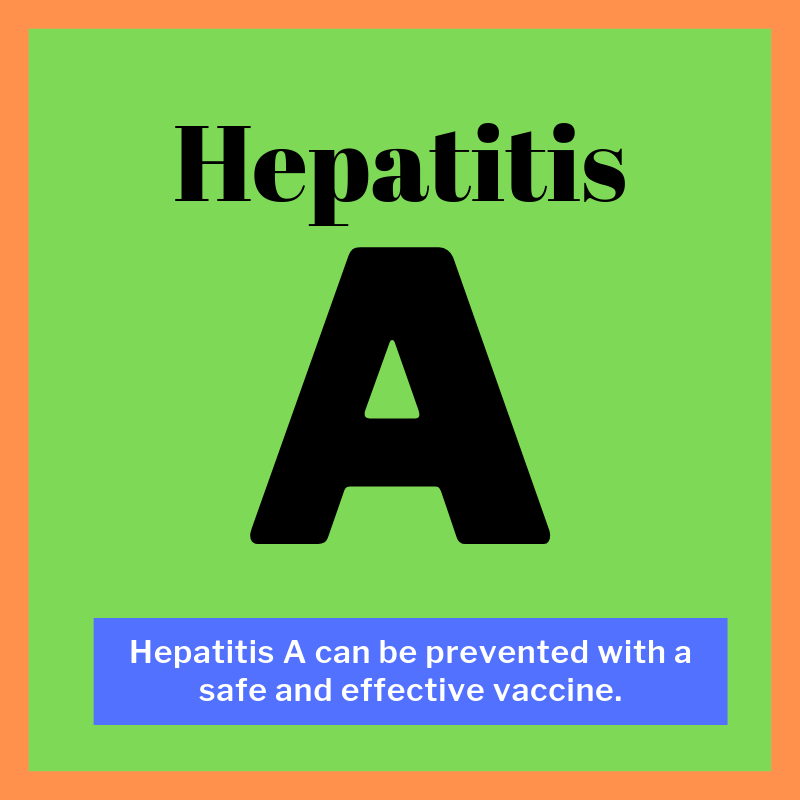Hepatitis A is Vaccine-Preventable
Hepatitis A is a vaccine-preventable, communicable disease of the liver caused by the hepatitis A virus (HAV). It is usually transmitted person-to-person through the fecal-oral route or consumption of contaminated food or water. The best way to prevent hepatitis A infection is to get vaccinated.
Hepatitis A is spread by:
- eating or drinking contaminated foods
- sex with an infected partner
- not washing hands after using the bathroom.
Symptoms include:
- nausea and vomiting
- fever and fatigue
- gray poop
- yellow eyes and skin.
Hepatitis A is a self-limited disease that does not result in chronic infection. Most adults with hepatitis A have symptoms, including fatigue, low appetite, stomach pain, nausea, and jaundice, that usually resolve within 2 months of infection; most children less than 6 years of age do not have symptoms or have an unrecognized infection. Antibodies produced in response to hepatitis A infection last for life and protect against reinfection.
Who should be vaccinated against hepatitis A?
The Advisory Committee on Immunization Practices (ACIP) recommends that the following persons be vaccinated against hepatitis A:
- All children at age 1 year,
- People with unstable housing or experiencing homelessness,
- Persons who are at increased risk for infection,
- Persons who are at increased risk for complications from hepatitis A, and
- Any person wishing to obtain immunity (protection).
For more information visit https://www.cdc.gov/hepatitis/hav/index.htm

